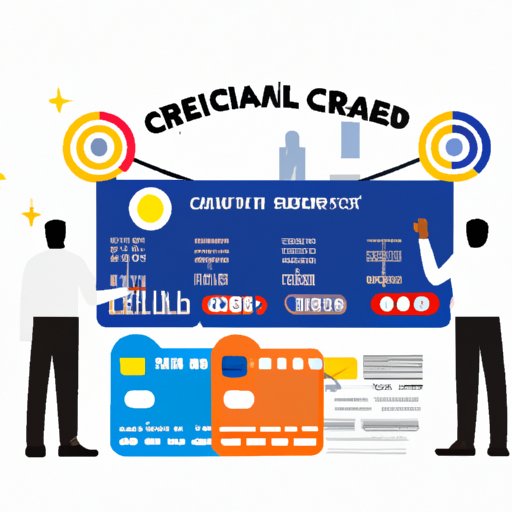Introduction
Business credit is a form of financing that allows companies to purchase goods or services without having to pay upfront. It is an important tool for businesses of all sizes, allowing them to grow and expand their operations with greater flexibility. But how much business credit can you qualify for? Knowing your credit limit is essential for making smart decisions about your company’s finances.
In this article, we’ll explore the factors that go into determining your business credit limit, as well as strategies for maximizing your available credit and managing it responsibly. Read on to learn more about how much business credit you can get.

Calculating Your Business Credit Limit
When it comes to calculating your business credit limit, there are several factors to consider. Your credit limit will depend on your business’s size, its credit history, and its financial stability. Lenders may also take into account any personal credit history associated with the business, as well as additional assets such as equipment or real estate.
It’s important to note that not all lenders use the same criteria when evaluating business credit applications. Some may be more lenient than others, so it’s important to shop around and compare offers before making a decision. Additionally, some lenders may require collateral in order to approve a loan. This could include real estate, vehicles, or other assets.
To get an accurate assessment of your business credit limit, it’s important to access your business credit reports. These reports provide detailed information about your company’s creditworthiness, including payment histories, account balances, and credit utilization. They can also alert you to any potential errors or discrepancies on your reports.

Understanding Your Business Credit Score
Your business credit score is one of the most important factors lenders consider when evaluating your application for a loan or line of credit. A good business credit score indicates that you have a strong track record of paying back loans on time and in full. It also reflects positively on your overall financial health.
There are several different types of business credit scores, each of which is weighted differently by lenders. The two most commonly used are the FICO Small Business Scoring Service (SBSS) and the Experian Intelliscore Plus. It’s important to check both of these scores regularly to ensure they accurately reflect your business’s creditworthiness.
You can check your business credit score for free through a number of online services, such as Nav or Experian. It’s also a good idea to review your credit reports regularly to identify any areas for improvement. This could include correcting any errors on your reports, paying down debt, and establishing a positive payment history.

Maximizing Your Business Credit Availability
Once you’ve established a solid business credit score, you can start taking steps to maximize your available credit. Building a positive business credit history is one of the best ways to do this. This means consistently making on-time payments to your creditors and avoiding late fees or defaults.
It’s also a good idea to diversify your credit sources. Utilizing different types of credit, such as lines of credit, installment loans, and credit cards, can help you build a strong payment history and improve your credit score. Additionally, finding the right lenders and financial partners can help you access better terms and rates.
Tips for Increasing Your Business Credit Approval Odds
When applying for business credit, there are a few steps you can take to improve your chances of approval. Keeping your personal and business finances separate is one of the most important. This means ensuring that all of your business transactions are conducted through a business bank account and credit card.
Paying your bills on time is another key factor. Late payments can hurt your credit score and make it harder to qualify for new credit. Additionally, securing additional collateral can improve your chances of getting approved, as it shows that you’re serious about repaying your debts.
Strategies for Managing Business Credit Responsibly
Managing your business credit responsibly is essential for maintaining a healthy credit score. Staying on top of payments is one of the most important steps. Set up automatic payments or reminders to ensure that you never miss a due date.
Limiting new credit applications is also important, as too many inquiries in a short period of time can damage your score. Finally, it’s important to maintain an accurate record of your credit accounts. This includes keeping track of balances and payment histories.
Conclusion
Knowing how much business credit you can qualify for is essential for making smart decisions about your company’s finances. Estimating your credit limit requires an understanding of your business’s size, credit history, and financial stability, as well as your personal credit score. Additionally, it’s important to access your business credit reports regularly and find the right lenders and financial partners.
Building a positive business credit history and utilizing different types of credit can help you maximize your available credit. Additionally, there are several strategies you can use to increase your approval odds and manage your credit responsibly. By following these steps, you can ensure that you get the most out of your business credit.
(Note: Is this article not meeting your expectations? Do you have knowledge or insights to share? Unlock new opportunities and expand your reach by joining our authors team. Click Registration to join us and share your expertise with our readers.)
